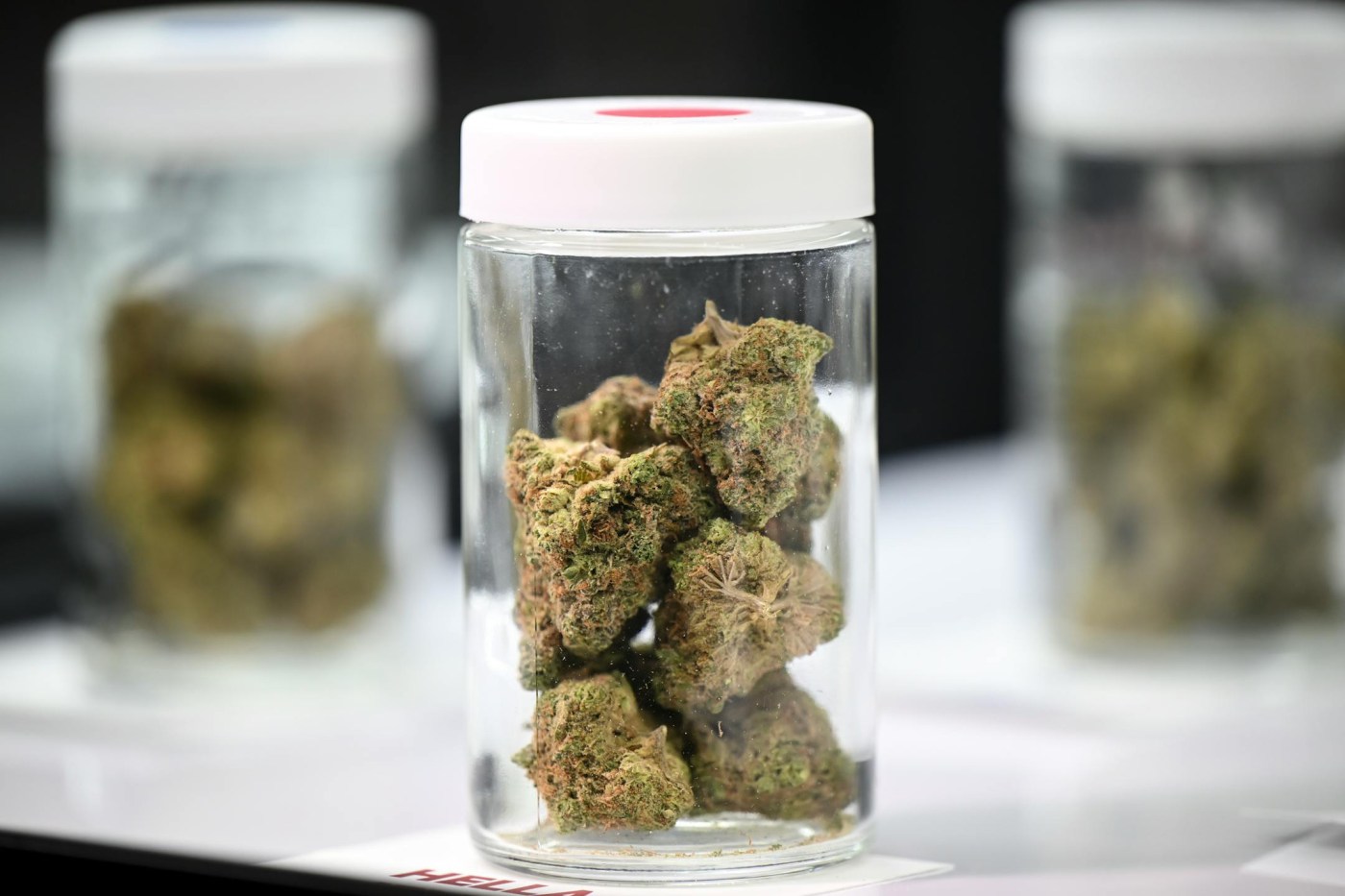
Matt DeLong, Star Tribune
A bill approved early Tuesday raises the tax on retail marijuana sales from 10% to 15%. Critics worry the change will fuel the illicit market.
In the waning hours of a special session Tuesday morning, the Minnesota Senate gave final approval to a bill that includes a 50% increase of the state tax on recreational marijuana sales as regulators prepare to launch Minnesota’s legal cannabis market in the coming months.
The bill also repeals language in the Minnesota law that legalized adult-use marijuana requiring the state to share 20% of cannabis tax revenue with local governments.
The law changes, which come just days after state regulators held the first lotteries to begin awarding hundreds of cannabis business licenses, were part of a budget deal announced last month by Gov. Tim Walz and legislative leaders.
(Sign up for Nuggets, our free weekly email newsletter about legal cannabis in Minnesota.)
As Minnesota leaders seek to head off a possible multibillion-dollar budget deficit a few years from now, the changes are expected to generate more than $200 million in additional revenue for the state over the next four years, according to a Minnesota House analysis.
The bill now heads to Walz’s desk for his signature. His office did not immediately respond to a request for comment.
“It ends up being comparable to what a lot of other states that have legalized cannabis [have done],” said House Floor Leader Harry Niska, R-Ramsey, during a Monday news conference. “It’s where the governor originally had proposed to set it. The market really hasn’t rolled out yet legally, we’ll see how that goes going forward.”
The tax hike – from 10% to 15% – will shift Minnesota’s tax on retail sales of marijuana and hemp-derived cannabinoid products from one of the lowest in the nation to among the highest, according to data compiled by the Tax Foundation.
Just five of the 21 states that collect a percentage for each marijuana sale — Washington, Montana, Illinois, Oregon and Arizona — currently have higher cannabis tax rates. California is set to raise its cannabis tax to 19% on July 1, though the state assembly voted unanimously to delay the increase earlier this month.
Minnesota also collects a 6.875% state sales tax on adult-use marijuana and hemp purchases.
Minnesota cannabis tax will be among highest in the nation
The increase in Minnesota’s cannabis gross receipts tax from 10% to 15% places it among the highest tax rates on retail marijuana sales in the country.
Tax Foundation – C.J. Sinner, The Minnesota Star Tribune
Sen. Lindsey Port, DFL-Burnsville, who sponsored the bill that legalized recreational marijuana in Minnesota, said she was “incredibly disappointed” by the decision to raise the tax on cannabis sales. The lower tax rate was intended to disincentivize consumers from buying marijuana from the black market, she said.
“With Minnesota’s legal market just starting, I fear the 50% increase in tax will encourage consumers to continue to buy from the illicit market where products are untested and sales to minors are far too common,” Port said. “This decision has the potential to harm the new legal businesses that are just starting to get up and running.”
Leili Fatehi, a lobbyist and partner at the Minneapolis-based cannabis consulting firm Blunt Strategies, said Walz and DFL leaders at the Capitol “rammed through one of the steepest cannabis tax hikes in the country, before a single adult-use license has been issued.”
She agreed the tax increase is likely to help prop up the illicit marijuana market.
“This tax hike isn’t just a policy misstep, it actively undermines the viability of the very market the state is trying to stand up,” Fatehi said. “It’s a gift to the unregulated market and exploitation of the entrepreneurs who are doing everything right.”
Representatives from the League of Minnesota Cities told lawmakers last month they opposed repealing the local government cannabis aid. It was intended to help cover the costs of regulating cannabis businesses, they said.
In a statement Tuesday, the League said it will now fall to cities to find resources to pay for those expenses.
“Cities are disappointed to see this aid eliminated just as the market is being set up and will have to rely on their own existing local budgets to fund compliance, safety, and other necessary regulatory work,” the statement read. “As the market matures and the impacts to cities become more concrete, we hope to be able to revisit options for local revenue with the state in the future.”
Glen Brown, owner of Gro’s Smoke Shop in Hopkins, which sells a wide array of hemp-derived beverages and edibles, said he is concerned the tax increase could hurt his bottom line.
“I think we’re going to see a significant decrease in sales,” Brown said. “It doesn’t really help the small business owners.”
Ryan Faircloth of the Minnesota Star Tribune contributed to this story.
©2025 The Minnesota Star Tribune. Visit startribune.com. Distributed by Tribune Content Agency, LLC
Related Articles
All The Ways Medical Marijuana Helps Fight Cancer
The Science Behind Weed & Allergies in May
Pardons Are A Priority Over Marijuana Rescheduling
Cannabis Chills While Alcohol Can Get Dark
Native American Tribes Find Economic Power In Alcohol, Cannabis And More